Gaza's Hamas-run health ministry said Monday more than 5,000 people have been killed in the battered Palestinian enclave since Israel launched its withering bombing campaign just over two weeks ago.
Alarm has surged about the spiralling humanitarian crisis in Gaza following Israeli aggression.
With the Israeli military saying it had conducted more than 300 new strikes within 24 hours, Gaza's health ministry said the death toll had surged over 5,000, including more than 2,000 children.
Thousands of buildings have been levelled and more than a million people displaced in the besieged territory that has been largely deprived of water, food and other basic supplies.
Twenty trucks carrying desperately needed aid arrived in Gaza through the Rafah crossing with Egypt Monday, the UN humanitarian agency said, the third convoy in as many days.
Israel pounded hundreds of targets in Gaza from the air Monday as its soldiers fought Hamas fighters during raids into the besieged Palestinian strip.
Gaza's health ministry said 436 people had been killed in bombardments over the past 24 hours, most in the south of the narrow, densely populated territory, next to which Israeli troops and tanks have massed for a possible ground invasion.
With Gaza's 2.3mn people running short of basics, European leaders looked set to follow the United Nations and Arab nations in calling for a "humanitarian pause" in hostilities so aid could reach them.
A US special envoy is negotiating with Israel, Egypt and the United Nations to create a "sustained delivery mechanism" to get aid into Gaza after aid convoys began crossing into the strip from Egypt, State Department spokesperson Matthew Miller said.
Israel cut the electricity supply to Gaza as part of the "total siege" it launched on October 9, seriously hindering communications between the Palestinian territory and the rest of the world.
"I'm recording this message, which could be the last, a voice message that I will send to my colleagues at Medical Aid for Palestinians, but I hope not," Mahmoud Shalabi, an executive at the British NGO said from Beit Lahia in northern Gaza.
The Israeli army has ordered the more than one million civilian inhabitants of northern Gaza to evacuate southwards to avoid the worst of its onslaught, although it With utter destruction around them, solemnity and despair often fill the messages Gazans post on social media to friends, colleagues, and the outside world.
"This is the kind of message I try to interrupt right away, when they tell me: 'If something happens to you, take care of yourself'," said Walid, a Gazan living in Paris, who declined to give his surname.
Air strikes have destroyed two of the three main mobile and internet communication lines, according to the UN's humanitarian agency OCHA, leaving the remaining connection overwhelmed.
Even where an internet connection is functioning, electricity to power it is in extremely short supply.
Some Gazans use generators for power, but fuel for these is hard to come, while others opt for car batteries.
Region
Over 5,000 civilians killed in Israeli strikes on Gaza
Besieged Gazans struggle to contact outside world
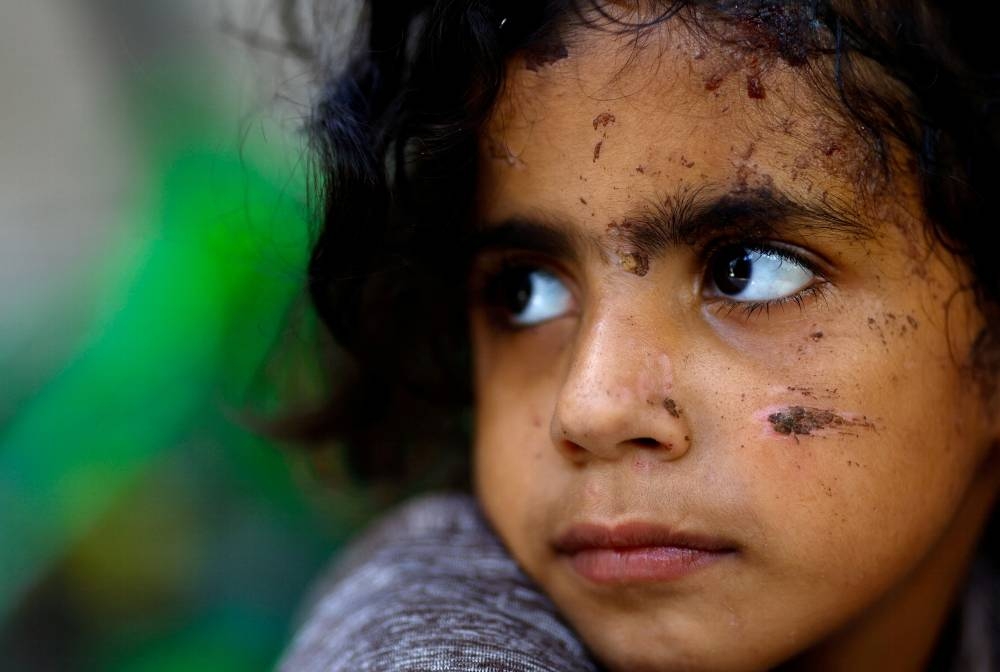
A Palestinian girl, one of the few survivors of Allamdani family, who fled to southern Gaza Strip to avoid the constant onslaught of Israeli airstrikes in Gaza City and settled in a shelter which was later hit by Israeli jets that killed 13 of her relatives, looks on, in Khan Younis in the southern Gaza Strip, on Monday. REUTERS
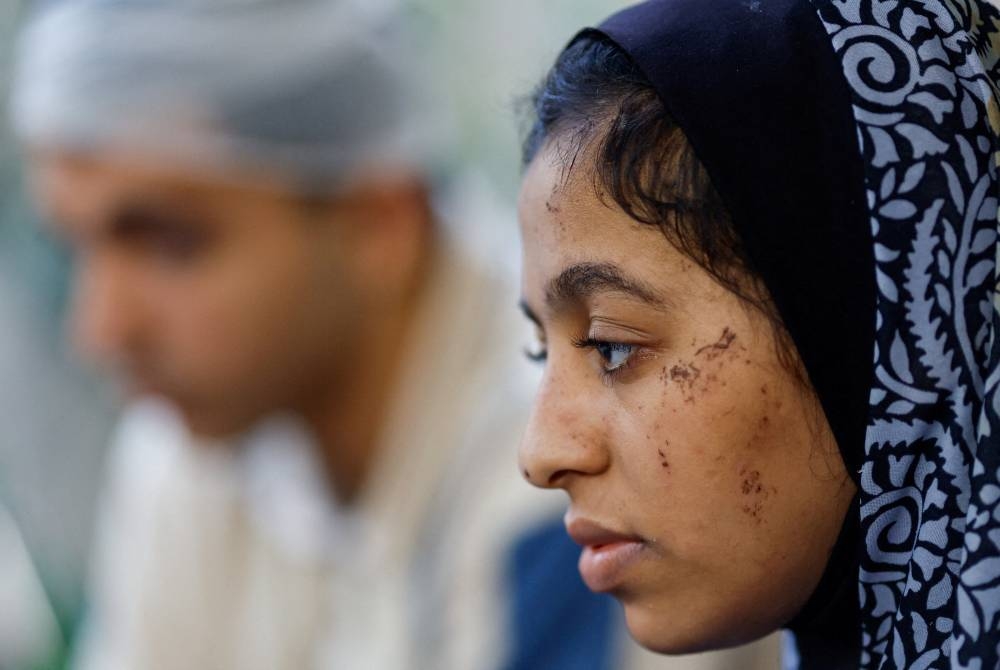
Palestinian teenager Dima Allamdani, who fled to southern Gaza Strip with her family to avoid the constant onslaught of Israeli airstrikes in Gaza City and settled in a shelter that was later hit by Israeli jets which killed 13 of her relatives, including her parents, 7 siblings and 4 members of her uncle's family, looks on, in Khan Younis in the southern Gaza Strip, on Monday. REUTERS
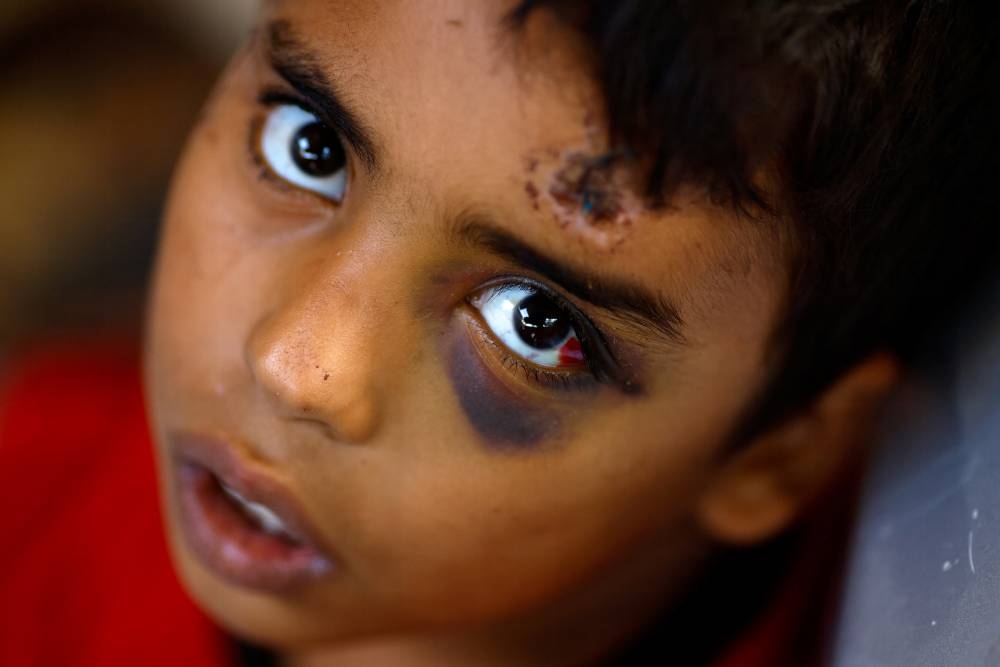
A Palestinian boy, one of the few survivors of Allamdani family, who fled to southern Gaza Strip to avoid the constant onslaught of Israeli airstrikes in Gaza City and settled in a shelter which was later hit by Israeli jets that killed 13 of his relatives, looks on, in Khan Younis in the southern Gaza Strip, on Monday. REUTERS
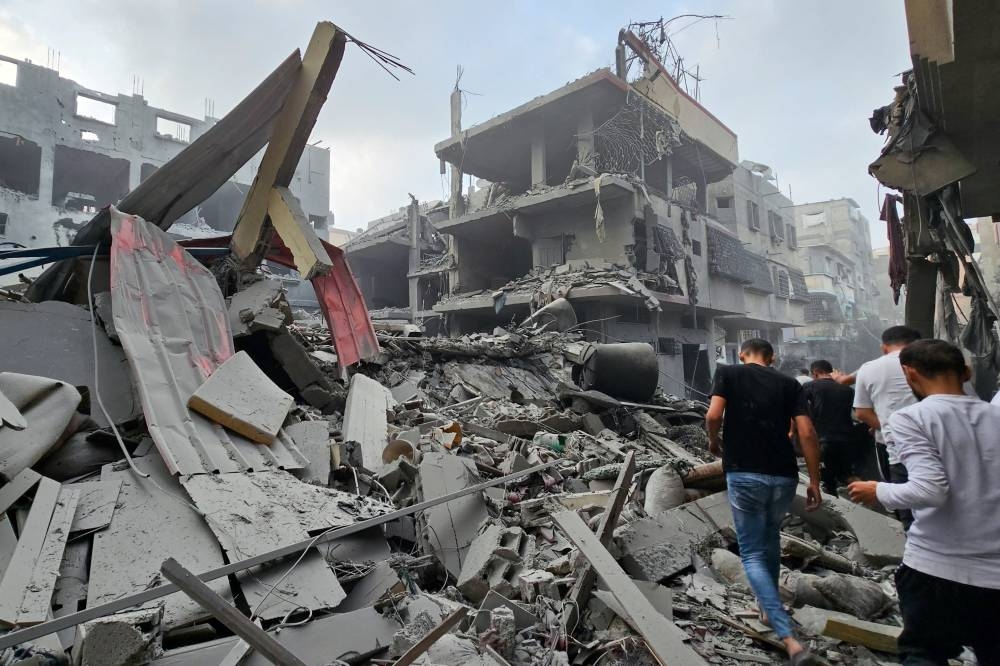
Palestinians gather at the site of Israeli strikes on houses, as the conflict between Israel and Palestinian Hamas continues, in the northern Gaza Strip Monday. REUTERS
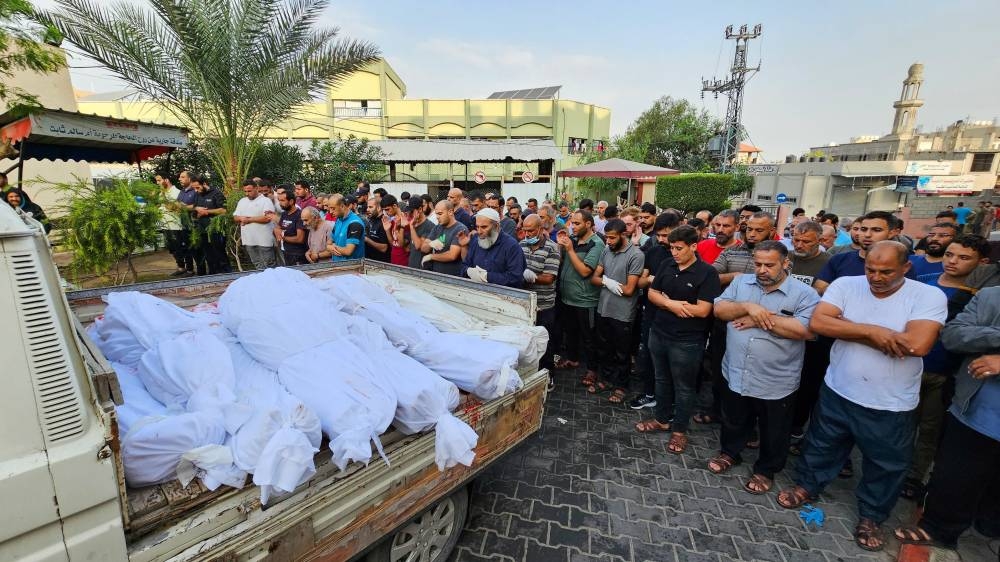
People attend the funeral of Palestinians who were killed in Israeli strikes, in the northern Gaza Strip, on Monday. REUTERS
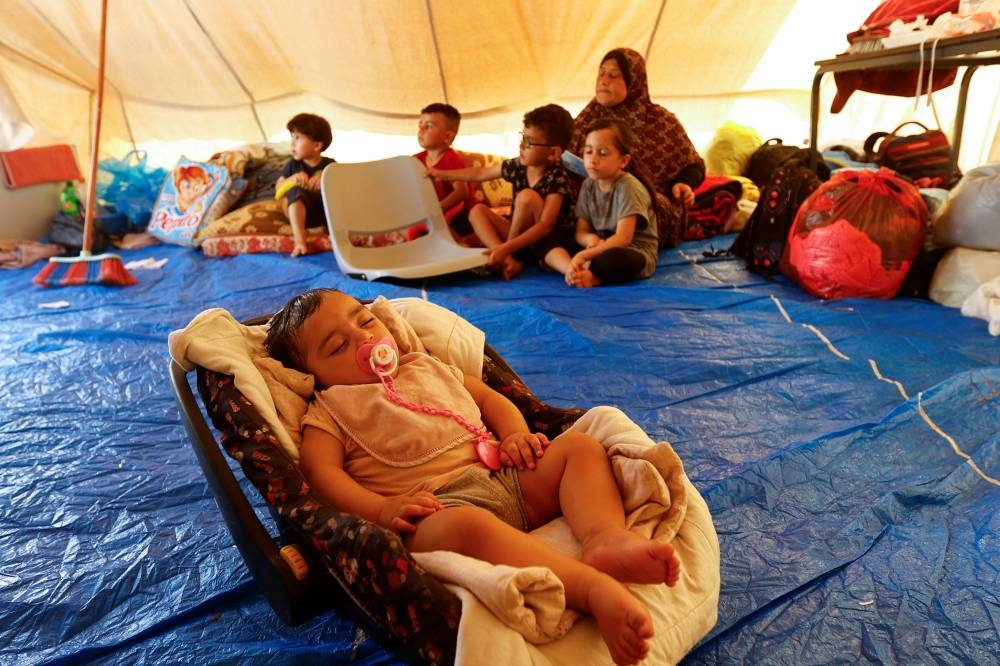
A woman sits with children in a tent, as Palestinians, who fled their houses amid Israeli strikes, take shelter in a tent camp at a United Nations-run centre, after Israel's call for more than 1 million civilians in northern Gaza to move south, in Khan Younis in the southern Gaza Strip, on Monday. REUTERS
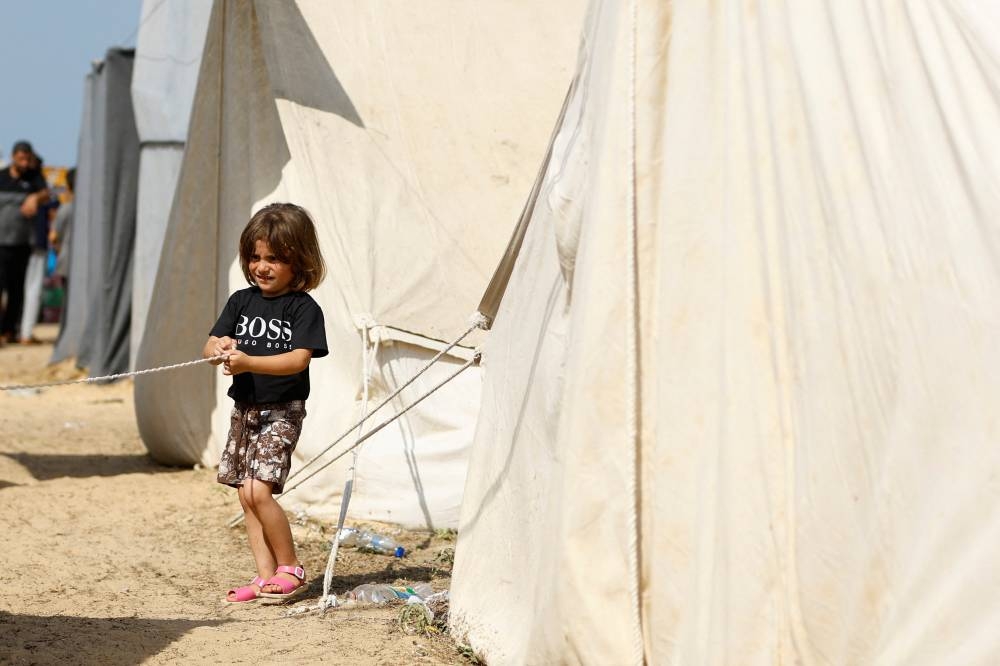
A child walks outside a tent, as Palestinians, who fled their houses amid Israeli strikes, take shelter in a tent camp at a United Nations-run centre, after Israel's call for more than 1 million civilians in northern Gaza to move south, in Khan Younis in the southern Gaza Strip, on Monday. REUTERS
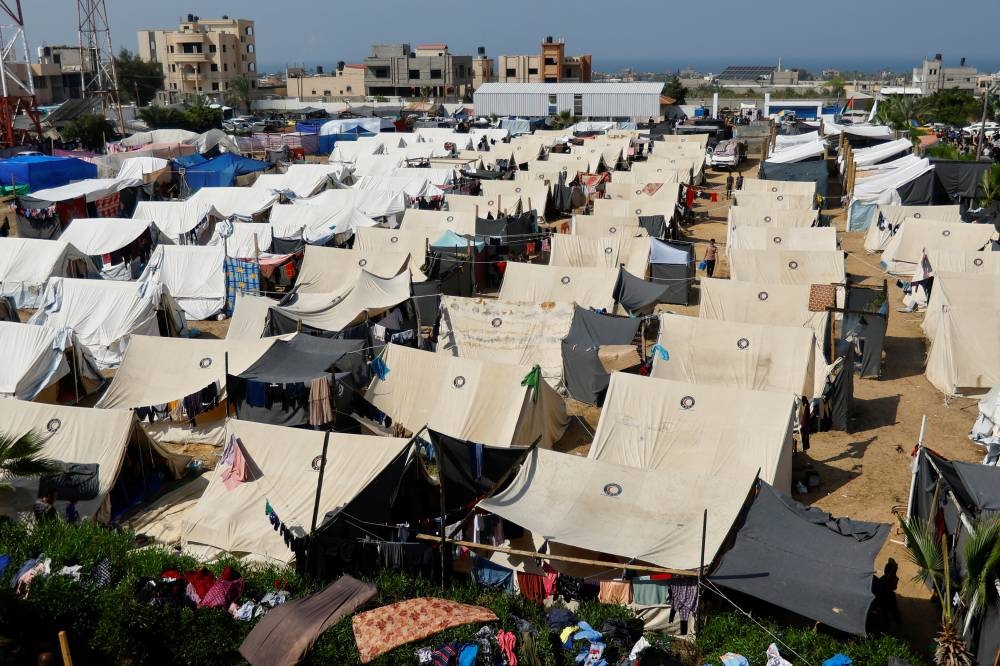
Palestinians, who fled their houses amid Israeli strikes, take shelter in a tent camp at a United Nations-run centre, after Israel's call for more than 1 million civilians in northern Gaza to move south, in Khan Younis in the southern Gaza Strip, on Monday. REUTERS
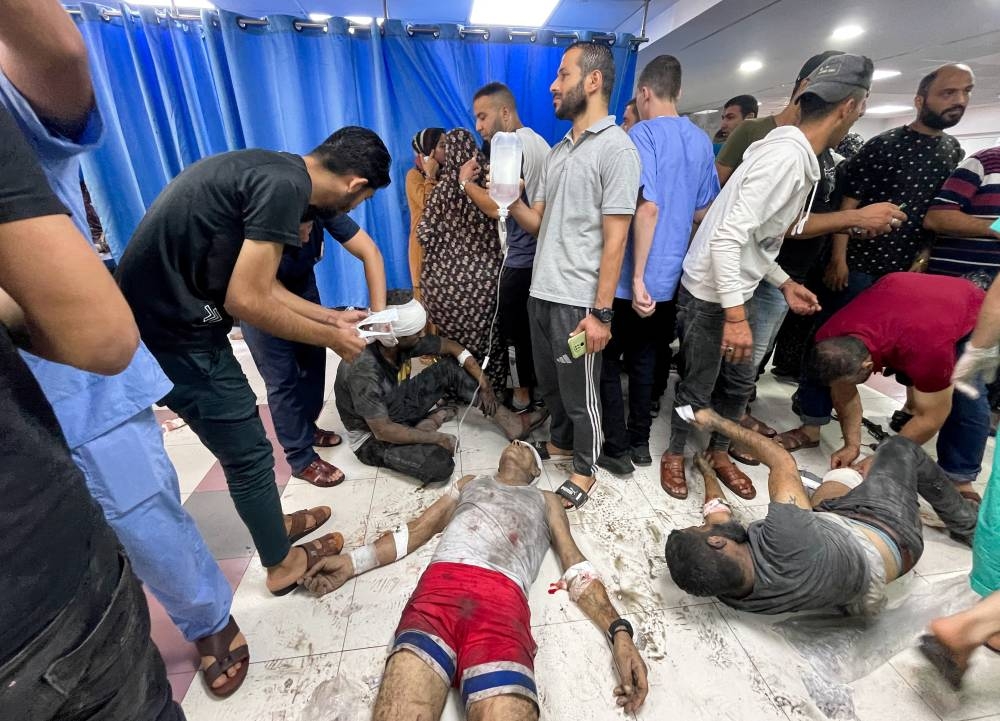
People stand next to Palestinians, who were wounded in an Israeli strike, at Shifa hospital in Gaza City, on Monday. REUTERS
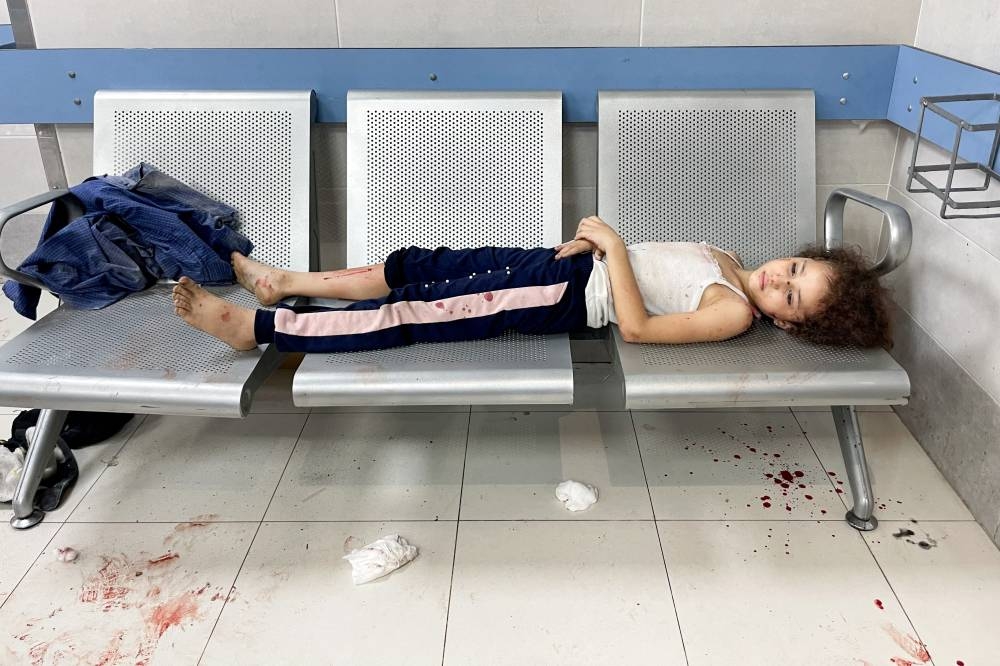
A Palestinian child, who was wounded in an Israeli strike, lies at Shifa hospital in Gaza City, on Monday. REUTERS
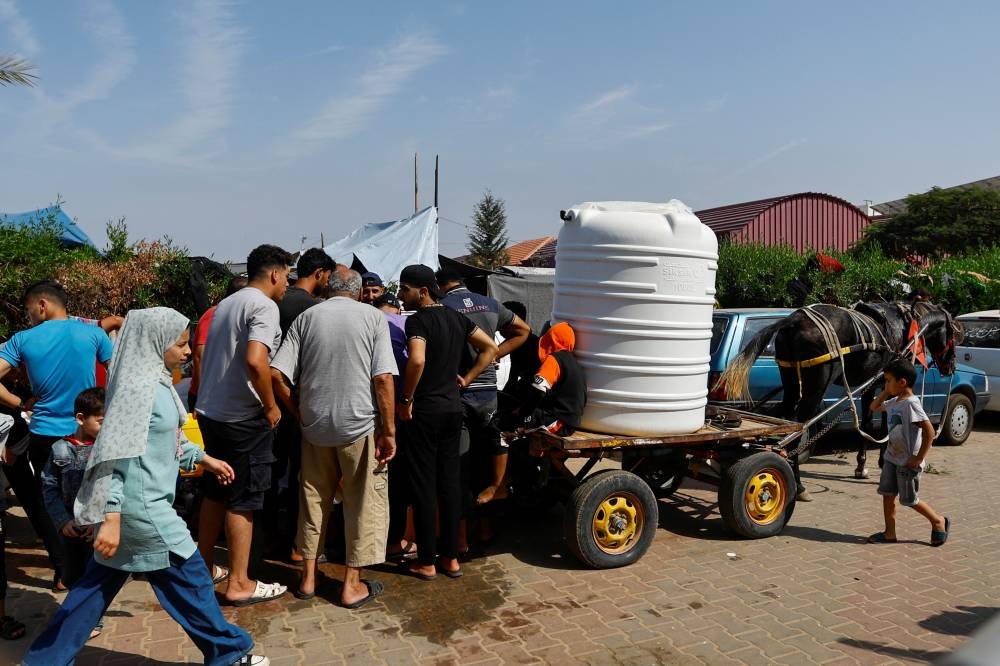
People gather to collect water, as Palestinians, who fled their houses amid Israeli strikes, take shelter in a tent camp at a United Nations-run centre, after Israel's call for more than 1 million civilians in northern Gaza to move south, in Khan Younis in the southern Gaza Strip, on Monday. REUTERS
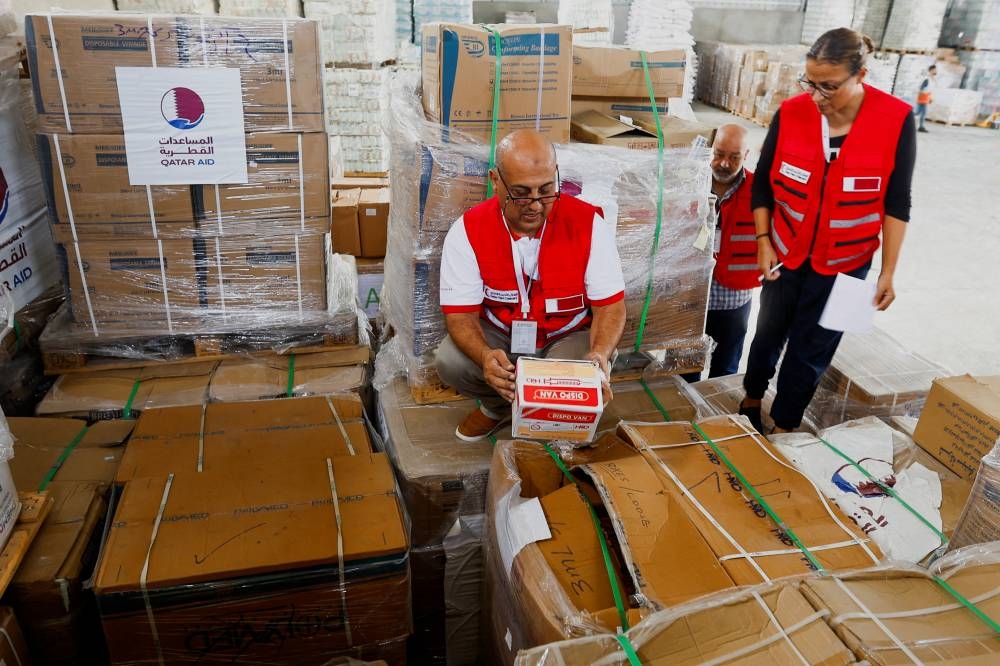
Red Crescent workers sort aid before being distributed to Palestinians, as the conflict between Israel and Palestinian Islamist group Hamas continues, in Khan Younis in the southern Gaza Strip, on Monday. REUTERS
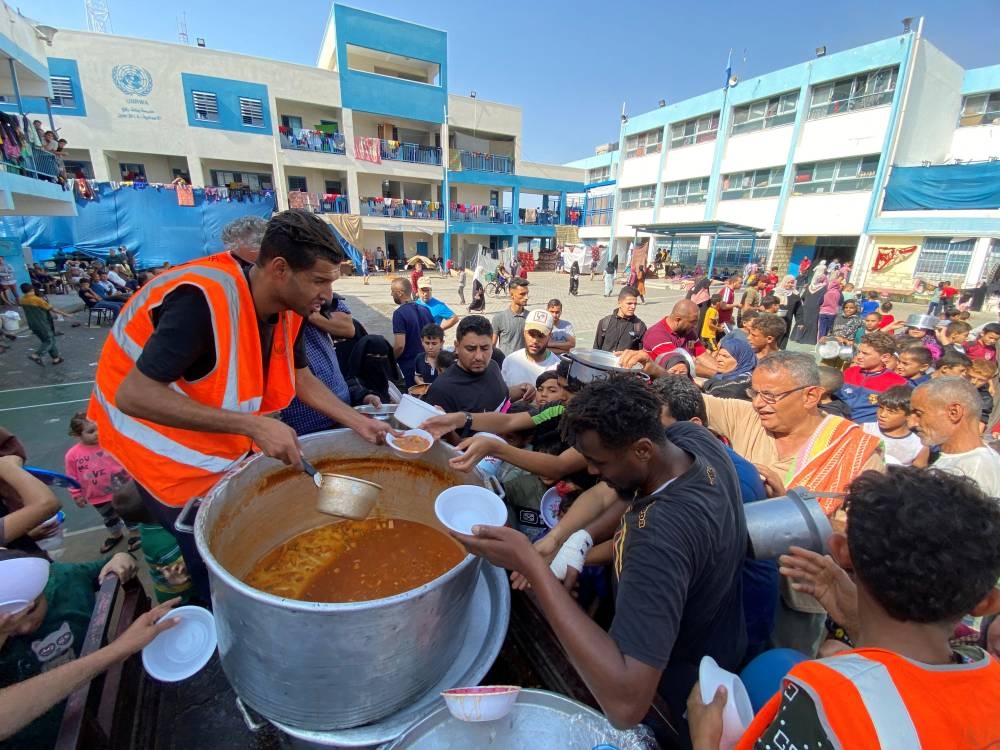
Palestinians, who fled their houses due to Israeli strikes, gather to get their share of charity food offered by volunteers, amid food shortages, at a UN-run school where they take refuge, in Rafah, in the southern Gaza Strip, on Monday. REUTERS
